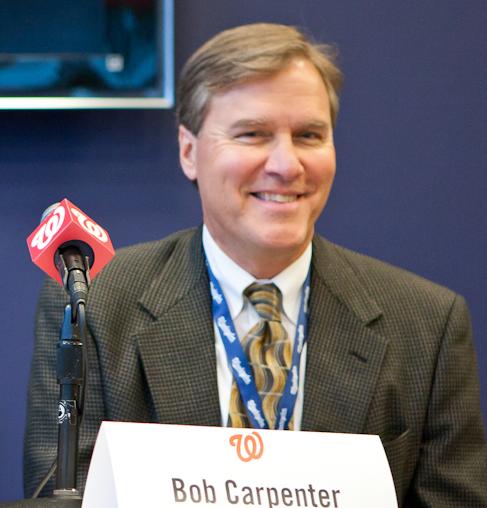As the final pitch approaches in a storied broadcasting career, longtime Major League Baseball commentator Carpenter takes a moment to reflect on his journey before signing off for the last time. In an exclusive conversation with MLB.com, Carpenter shares insights on memorable moments behind the microphone, the evolution of the game, and what saying “See! You! Later!” really means as he prepares to close the chapter on his distinguished tenure.
Broadcaster Carpenter Shares Personal Reflections on a Storied MLB Career
As the final pitch of his illustrious broadcasting career draws near, Carpenter took a moment to look back on the decades spent narrating some of baseball’s most unforgettable moments. From the crack of the bat to the roar of the crowd, his voice has been synonymous with the sport for generations. Reflecting on his journey, he emphasized the profound connection between the game and its fans, describing baseball not just as a sport, but as a lifelong companion that has shaped his identity both on and off the airwaves.
Carpenter’s reflections also highlighted the evolving landscape of Major League Baseball, noting how technology and new platforms have expanded the way audiences engage with the game. Yet, despite these changes, the core spirit of baseball remains untouched. In sharing a few cherished memories, he expressed gratitude for the camaraderie and the countless stories etched into his career. The broadcaster’s legacy is not merely in the calls he made, but in the moments and emotions he helped immortalize:
- Iconic Games: Calling World Series victories that still resonate with fans.
- Player Relationships: Bonds forged with legends and rookies alike.
- Community Impact: Giving back through charity events and youth programs inspired by baseball.
| Year | Career Highlight | Notable Opponent |
|---|---|---|
| 1983 | First MLB broadcast | New York Yankees |
| 1998 | Called World Series Game 7 | Atlanta Braves |
| 2010 | Reached 3,000 career broadcasts | Boston Red Sox |
Analyzing Carpenter’s Impact on Baseball Commentary and Fan Engagement
Over the course of his distinguished career, Carpenter revolutionized the way baseball commentary connects with both seasoned fans and newcomers. His signature blend of sharp analysis and personable storytelling made each broadcast feel like a conversation rather than a mere play-by-play narration. More than just calling the game, Carpenter injected a palpable energy that often turned routine moments into memorable highlights. His ability to break down complex plays without losing emotional depth helped cultivate a deeper appreciation for the sport among audiences, enhancing the overall fan experience.
- Innovative storytelling: Carpenter wove historical context and player backstories into live commentary, enriching the narrative beyond the diamond.
- Fan inclusivity: Used engaging catchphrases and interactive segments fostering a personal bond with listeners and viewers.
- Analytical depth: Offered insightful statistical perspectives that educated fans while maintaining accessibility.
| Aspect | Impact | Fan Response |
|---|---|---|
| Catchphrases | Boosted identity and memorability | High engagement; often quoted |
| Game Analysis | Elevated viewer understanding | Positive; fostered loyalty |
| Player Stories | Humanized athletes beyond stats | Strong emotional connection |
What truly sets Carpenter apart is the reciprocal relationship he maintained with his audience. His acknowledgments of fan feedback, coupled with candid reflections on the evolving nature of baseball broadcasting, demonstrated a rare openness and adaptability. This dynamic interaction not only amplified fan engagement but also inspired a new generation of broadcasters to prioritize authenticity and audience rapport. As the season closes on Carpenter’s final game, his legacy remains firmly embedded in the culture of baseball commentary, reminding us all that the voice behind the microphone can be as integral to the game’s story as the players on the field.
Key Takeaways from Carpenter’s Final Broadcast and Advice for Aspiring Broadcasters
Broadcaster Carpenter’s final on-air moments were not just a farewell but a masterclass in passion and professionalism. He emphasized the importance of authenticity, urging aspiring broadcasters to find their unique voice and connect genuinely with their audience. According to Carpenter, the ability to tell a story beyond the stats is what separates good broadcasters from great ones. His reflections also underscored the value of resilience in a competitive industry, reminding newcomers that setbacks are simply part of the journey toward success.
For those looking to break into the field, Carpenter highlighted a few essential ingredients for a lasting career. Continuous learning tops the list, along with developing a solid understanding of the game’s nuances. He also stressed the need to cultivate strong relationships within the sports community, which can open doors and provide critical mentorship opportunities. Below is a quick snapshot of Carpenter’s top advice for emerging voices in broadcasting:
- Find your authentic style; don’t mimic others.
- Stay curious and keep learning; broaden your knowledge beyond the basics.
- Develop strong communication skills; clarity and emotion matter equally.
- Build genuine relationships; networks can accelerate growth.
- Embrace failure; every challenge is a learning opportunity.
| Key Attribute | Carpenter’s Advice |
|---|---|
| Authenticity | Be yourself, every broadcast is unique. |
| Preparation | Know your sport inside and out. |
| Connection | Engage with fans and fellow professionals. |
| Resilience | Learn from mistakes, keep moving forward. |
Wrapping Up
As broadcaster Carpenter prepares to sign off after his final game, his reflections underscore the deep connection between sports and storytelling. Throughout his career, he has not only narrated countless moments on the field but also captured the passion and emotion that define baseball. Fans and colleagues alike will remember his distinctive voice and thoughtful insights long after he says, “See! You! Later!” on the airwaves for the last time.


